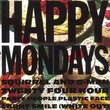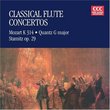| All Artists: Bach, Pierre-Laurent Aimard Title: Bach: Art of Fugue Members Wishing: 0 Total Copies: 0 Label: Deutsche Grammophon Original Release Date: 1/1/2008 Re-Release Date: 3/11/2008 Genre: Classical Styles: Chamber Music, Forms & Genres, Improvisation, Historical Periods, Baroque (c.1600-1750), Classical (c.1770-1830) Number of Discs: 1 SwapaCD Credits: 1 UPC: 028947773450 |
Search - Bach, Pierre-Laurent Aimard :: Bach: Art of Fugue
 | Bach, Pierre-Laurent Aimard Bach: Art of Fugue Genre: Classical
Pierre-Laurent Aimard's debut on Deutsche Grammophon is the first recording of the mystical The Art of Fugue by a world-renowned pianist in 25 years. As a pre-eminent performer of modern music, Aimard brings a unique and e... more » |
Larger Image |
CD DetailsSynopsis
Album Description Pierre-Laurent Aimard's debut on Deutsche Grammophon is the first recording of the mystical The Art of Fugue by a world-renowned pianist in 25 years. As a pre-eminent performer of modern music, Aimard brings a unique and exciting approach to his first ever Bach recording also serving as his first recording of Baroque repertoire. Given his links to many of the great contemporary composers, the high-profile Aimard is certain to generate much interest in the musical press with his first Bach recording. Aimard will perform The Art of Fugue in many musical venues around the world, in cities including New York, Paris, Vienna, Berlin and Tokyo. Similar CDs
Similarly Requested CDs
|
CD ReviewsClarity Eric Gross | Philadelphia Suburbs | 03/24/2008 (5 out of 5 stars) "I am not a musicologist, but I am someone who has listened to quite a few performance of the Art of the Fugue over the last 45 years and I can say that I find the Aimard performance to be among the very best. I did carefully examine the review be Villegem and also looked, in detail, at his many other reviews. He is obviously a discerning and well informed person, but I simply find his review of this breathtaking performance, at best, academic in the worst sense of the word. If Aimard's technique fails to conform to the scholarly work of several musicologists, what difference does that really make? Can we say with certainty that that is true? I very much doubt it. We are separated by a vast gulf of time between the writing of this music and now. Who knows how Bach would have preferred to have the Kunst der Fuge performed? Who is to say that even his conception and personal style is the best for this music? How we listen and enjoy music is very subjective. I haven't found the performances of Copland's music conducted by the composer to be the best. The same holds for Stravinsky. I do know that Aimard's performance is like light penetrating the massive complexity of this work. The end of the final fugue is truly a moment of immense and cosmic proportions. This performance is very very highly recommended.Liberation from the Lie: Cutting the Roots of Fear Once and for All" Professional but not transcendent... Teop Tnomrev | Vermont, USA | 04/05/2008 (3 out of 5 stars) "If I have to pick a performance on Piano, Glenn Gould's recording, incomplete though it is, remains my favorite. After that, Feltsman's remains my preferred. I also have Sokolov, but Feltsman, to my ears, brings more joy where there is joy, and more sorrow where there is sorrow. Sokolov's playing is cleaner, more Gould-like, but without Gould's intense "romanticism" or emotional investment. Feltsman is also a more idiosyncratic pianist, willing to inflect the music with his own personality. Sometimes he does so to a fault, as with his recording of Bach's Goldberg Variations, which I wouldn't recommend. One of my favorites is Contrapunctus 9. Feltsman digs into the fugue with all the gusto of Gould's famous performance on the organ. Sokolov's performance of the same piece is slower and comes with a sense of detachment - a little too studied. Aimard's rendition takes a similarly happy pace to Gould and Feltsman, but it is oddly monochromatic. The sense of an overarching direction or drama is missing, and this is the feeling that much of Aimard's performances leave me with. I have no doubt that he can conceive of the piece in its entirety, but somehow he doesn't translate that in his playing. The sum does not exceed its parts. The other element that I miss in Aimard's playing is idiosyncrasy. Each of his fingers strikes the keys with the sort of pearled consistency that is the mark, not of the artist, but of the professional. I miss the unexpected turns of phrases and emphasis that are the hallmarks of a Gould and, to a degree, Feltsman." Extraordinary deciphering of the Code! M. Zimmermann | Vienna,Austria | 03/11/2008 (5 out of 5 stars) "I guess every Aimard-Fan will have asked twice hearing that his new album features Bach's Art of the Fugue...Aimard...playing Bach???? The same Aimard who brought us such wonderful recordings of the works of Ligeti and Messiaen and who became a highly recommended artist for the 20th century repertoire...?
But it's true and most of all: Aimard's "Kunst der Fuge" is incredible and one of the most interesting releases this year so far. By many regarded as one of the greatest enigmas in music history and as Aimard states himself in the booklet "..for a long time taken to be the height of abstraction, an untouchable object of speculation that only a few specialists were capable of deciphering...." this is exactly what Aimard does here: deciphering the code in one of the most logical ways ever recorded! The recordings of Bach's difficult work feature many interpretations on many different instruments reaching from Harpsichord to Piano or String Quartet and Orchestrations, as Bach himself never stated what instrument it was intended for. Aimard chose his own domaine the piano and by doing so reaches the height of the best recording of the work so far: Tatiana Nikolayeva's ivory tower recording which still stands out as the best. But in one way Aimard even surpasses her: In sheer logic! Never has one heard the different juxtaposition of the many counterpoints done so logically and clearly. Hearing Aimard, one has finally the impression of understanding Bach's last message. As a minor addition the incredible warm DG sound helps a lot and the piano sounds very natural and perfectly balanced. So any pessimist out there who would never have thought that Aimard could play Bach or even come close to an interpretation of Art of the Fugue should listen to this as fast as he can and re-think his pessimism! For all Aimard fans to date one of the best discs he ever made!" |

 Track Listings (20) - Disc #1
Track Listings (20) - Disc #1











